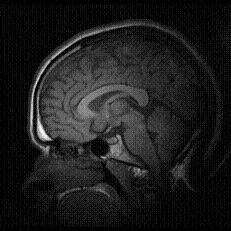|
|
|
Genetic Engineering
- Genetics Introduction
- Genetic Basics
- Engineering Methods
- Human Cloning
- Eugenics
- Designer Babies
- Mapping The Genome
- Genetics and Religion
- Disease Elimination
- Longevity
- Capacity
- Adaptability
- Fashion
- Physical Attraction
- Stem Cells Revealed
- Stem Cells Controversy
- Human Rights
- The Genetic Brain
- Human Speciation
Other Pages
Genetic Engineering

Capacity
The human body is a remarkable thing with enormous natural capabilities and capacity that we can choose to develop as we wish. We can develop our muscular capacity to lift more than three times our own body weight, we can train our minds to recall thousands of facts or numbers. Record book are full of these amazing feats and achievements. Not only that but when faced with danger to ourselves or others we can reach into our reserves and use as yet untapped resources and skills.
And we can do all this without the assistance
of science or medicine. Add into the mix genetic
engineering and it's associated sciences and
the potential for human endeavour is extraordinary
and controversial.
For centuries we have been performing genetic
manipulation; as a species we learnt early to
identify the healthiest, strongest animals,
those with the traits that were most desirable
and to use them for breeding the next generation,
genetic engineering at its most basic.
As humans we choose our breeding partners for
very similar reasons, though perhaps less consciously.
We want the healthiest, most intelligent, most
attractive gene supply. But, these terms are
subjective, what is attractive to one person
is not necessarily the same for the next, some
people value artistic rather than academic skills.
How do we measure intelligence? IQ tests, for
example, only measure a certain kind of intelligence.
What about undesirable traits such as criminality?
These are big questions and debates and will
be covered in a future article that will look
beyond the technical.
Lets start simply; most certainly the time is
fast approaching when we will be able to genetically
modify, using stem cell engineering, our major
organs, heart, lungs, liver etc. At present
this research is aimed at organ
repair and renewal and at creating 'designer
babies', embryos that are chosen and/or engineered
for specific traits. Potentially these techniques
could be used for organ enhancement; a heart
that pumped more efficiently would increase
an athletes performance. Genetically modified
muscle
cells, introduced into the person would
increase their strength. The list of
opportunities
for modifying humans for enhanced capacity is
enormous and the possible usage limited only
by our imagination.
The major organs have relatively simple, specialist
functions, ergo; the genetic engineering of
these organs is relatively simple. It is when
we get on to the brain and intelligence that
the story gets a little more complex.
Researchers
believe they have begun to identify the genes
that give us our intelligence. However, there
is a huge debate about how much 'intelligence'
is derived from genes and how much from environmental
influences. The jury is still out on whether
our cognitive abilities are purely genetic,
the most likely scenario is that it is a combination
of factors that give us our 'intelligence'.
However, if we can identify the 'genius gene'
it may be possible to override the influence
of our environment. We could use present technologies
such as PGD
to choose only those embryos that demonstrate
the desired gene sequences or we could genetically
engineer embryos to include certain chosen traits,
say musicality or enhanced language skills.
Another avenue might be to use stem cells to
implant the required genes into an adult to enhance
there mental capacity. Experimentation is quite
advanced in the area of treatment for neurological
disease and disorder and it is not such
a huge leap to foresee the use of this technology
for the enhancement of brain functions.
^ Top ^
|
|
|

